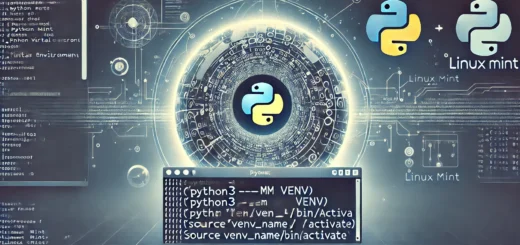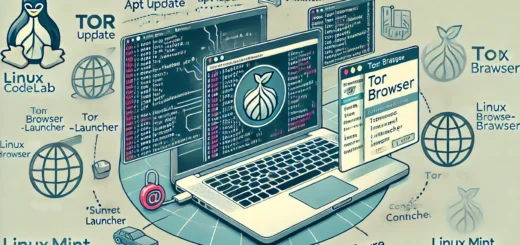Introduction to Cronjobs for Full Ubuntu Automation

Automation is essential for efficient system management. One of the most powerful tools in Ubuntu for automating tasks is cron, a time-based job scheduler. By setting up cronjobs, you can schedule repetitive tasks like backups, updates, and system monitoring, making your system more reliable and reducing manual intervention. This article will explore 15 essential cronjobs that can help you automate your Ubuntu system completely.
Understanding Cronjobs
Cronjobs are scheduled tasks that run automatically at specified times. The cron daemon in Ubuntu checks the cron tables (crontab) for commands to execute. A typical cronjob has five time-and-date fields followed by the command to execute:
* * * * * command-to-execute
The five fields represent minute, hour, day of month, month, and day of week, respectively. An asterisk (*) in any field indicates all possible values for that field.
Setting Up Cronjobs
To set up cronjobs, follow these steps:
- Open the terminal.
- Type
crontab -eto edit the cron table for your user. - Add your cronjobs to the file and save it.
Now, let’s dive into the 15 essential cronjobs for full Ubuntu automation.
1. System Updates
Keeping your system updated is crucial for security and performance. Automate updates by running this cronjob:
0 2 * * * sudo apt update && sudo apt upgrade -y
This job runs daily at 2 AM, checking for updates and installing them automatically.
2. Daily System Backup
Backups are vital to prevent data loss. Automate daily backups with the following cronjob:
30 3 * * * tar -czf /backup/$(date +%F).tar.gz /important/data
This cronjob creates a compressed backup of your important data at 3:30 AM daily.
3. Clearing Cache
Clearing cache regularly frees up space and improves performance. Set up a weekly cache clearing cronjob:
0 4 * * 0 sudo apt-get clean && sudo apt-get autoclean
This job clears the cache every Sunday at 4 AM.
4. Monitoring Disk Usage
Monitoring disk space helps prevent storage issues. Use the following cronjob to monitor disk usage:
0 5 * * * df -h | mail -s "Disk Usage Report" your_email@example.com
This job sends a disk usage report to your email daily at 5 AM.
5. Reboot System Regularly
Regular reboots help keep your system running smoothly. Automate this with:
Copy code0 3 * * 7 sudo reboot
This job reboots the system every Sunday at 3 AM.
6. Database Backup
If you run a database, automate its backup using the following cronjob:
0 2 * * * mysqldump -u root -pYourPassword database_name > /backup/db_backup_$(date +%F).sql
This job backs up your database daily at 2 AM.
7. Log Rotation
Log rotation prevents logs from consuming too much space. Set up log rotation with:
0 0 * * * sudo logrotate /etc/logrotate.conf
This job rotates logs based on the settings in the logrotate configuration file, running daily at midnight.
8. Service Monitoring and Restart
Ensure critical services are running by setting up a cronjob to monitor and restart them:
*/5 * * * * systemctl is-active --quiet your_service || systemctl restart your_service
This job checks if the service is running every 5 minutes and restarts it if not.
9. Sync Time with NTP
Keeping your system clock accurate is crucial for time-sensitive applications. Sync time with this cronjob:
0 * * * * sudo ntpdate -s time.nist.gov
This job synchronizes your system time every hour.
10. Remove Old Files
Automate the removal of old files to free up space. Use this cronjob to delete files older than 30 days:
0 3 * * * find /path/to/files* -mtime +30 -exec rm {} ;
This job runs daily at 3 AM, deleting files older than 30 days.
11. Network Monitoring
Monitor network activity by scheduling a cronjob to log network statistics:
*/10 * * * * ifstat >> /var/log/ifstat.log
This job logs network statistics every 10 minutes.
12. Send System Report
Receive a daily system status report via email using this cronjob:
0 6 * * * top -b -n1 | head -n 20 | mail -s "System Report" your_email@example.com
This job sends a summary of system activity to your email every day at 6 AM.
13. Backup Crontab
Backup your cronjob settings regularly to prevent accidental loss:
0 1 * * 1 crontab -l > /backup/crontab_backup_$(date +%F).txt
This job backs up your crontab file every Monday at 1 AM.
14. Clean Up Orphaned Packages
Orphaned packages are unnecessary and take up space. Clean them up with this cronjob:
0 4 * * 7 sudo apt-get autoremove -y
This job removes orphaned packages every Sunday at 4 AM.
15. Automated System Health Check
Keep your system in good health by running a regular health check:
0 7 * * * sudo apt-get check && sudo debsums -s | mail -s "Health Check Report" your_email@example.com
This job checks for broken dependencies and system integrity daily at 7 AM, emailing the results to you.
Managing and Troubleshooting Cronjobs
Cronjobs can sometimes fail to execute as expected. To troubleshoot issues, follow these steps:
- Check the cron log: Cron logs can be found in
/var/log/syslogor by setting up a log for cron usingMAILTOor> /path/to/logfile 2>&1. - Test the command manually: Run the command manually in the terminal to ensure it works as expected.
- Check the environment variables: Cron runs in a minimal environment. Ensure all necessary paths and variables are set.
Best Practices for Cronjobs
- Use absolute paths: Always specify the full path to commands and files to avoid path-related issues.
- Monitor cronjobs: Regularly check that your cronjobs are running and performing the intended tasks.
- Backup crontab: Periodically back up your crontab file to recover from accidental deletions or changes.
- Use cronjob naming conventions: Name your scripts clearly and keep them organized in a dedicated directory.
- Avoid running too many cronjobs simultaneously: Stagger the timing of your cronjobs to prevent system overload.
Conclusion
Cronjobs are an indispensable tool for automating tasks on Ubuntu systems. By setting up these 15 essential cronjobs, you can automate updates, backups, monitoring, and maintenance tasks. This will not only save time but also ensure your system runs smoothly and efficiently. Regularly monitoring and managing these cronjobs will keep your Ubuntu system optimized and secure.
Thank you for reading the article! If you found the information useful, you can donate using the buttons below:
Donate ☕️ with PayPalDonate 💳 with Revolut






















